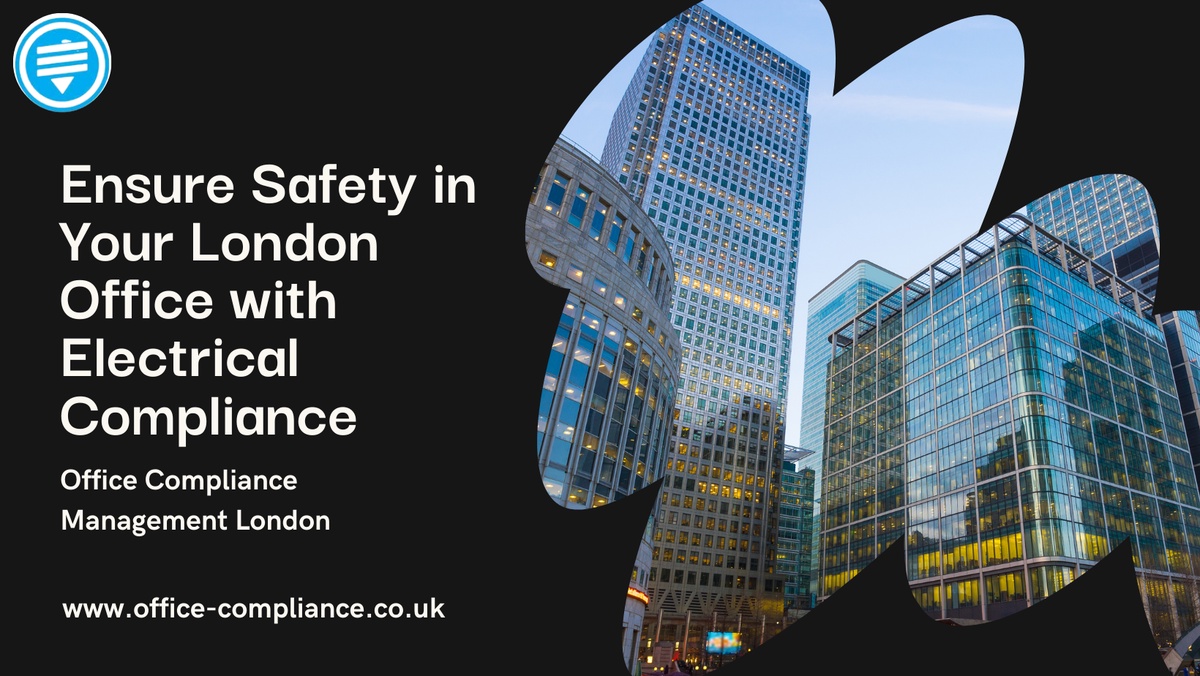In the modern world, electricity is the lifeblood of society, powering our homes, businesses, and industries. However, with its convenience and necessity come risks, and ensuring electrical compliance is vital for safeguarding both lives and property. In the United Kingdom, a robust regulatory framework governs electrical safety standards, aiming to mitigate hazards and promote reliability. In this article, we'll explore the intricacies of electrical compliance in the UK, highlighting its importance and providing guidance for businesses, homeowners, and professionals.
Understanding Electrical Compliance
Electrical compliance encompasses a set of regulations, standards, and best practices aimed at ensuring the safety and reliability of electrical installations. In the UK, compliance is governed by various laws and regulations, including the Electricity at Work Regulations 1989, the Building Regulations, and British Standards such as BS 7671 (the IET Wiring Regulations). These regulations establish requirements for the design, installation, operation, and maintenance of electrical systems to prevent electrical accidents and minimize the risk of fire or injury.
Responsibilities of Duty Holders
Under the Electricity at Work Regulations, duty holders have legal obligations to ensure electrical compliance. This includes employers, building owners, landlords, and anyone else responsible for electrical installations in the workplace or domestic premises. Duty holders are required to assess and manage electrical risks, maintain electrical systems in a safe condition, and provide adequate training and supervision for personnel working with electricity.
Electrical Installation Condition Reports (EICRs)
One of the key tools for ensuring electrical compliance in the UK is the Electrical Installation Condition Report (EICR). This document, also known as a periodic inspection report, provides an assessment of the safety and condition of an electrical installation. Qualified electricians conduct EICRs at regular intervals, typically every 5 to 10 years for domestic properties and more frequently for commercial premises. The report identifies any defects, damage, or non-compliance with regulations and provides recommendations for remedial action.
Building Regulations and Part P
Building Regulations in the UK include specific requirements for electrical installations, covering aspects such as electrical safety, energy efficiency, and accessibility. Part P of the Building Regulations pertains specifically to electrical safety in dwellings, setting standards for electrical work carried out in homes and gardens. Compliance with Part P is essential for ensuring the safety of electrical installations in domestic properties, with requirements for competent persons to carry out electrical work and obtain appropriate certification.
Competence and Certification
Ensuring the competence of individuals involved in electrical work is a fundamental aspect of electrical compliance. Electricians and electrical contractors must possess the necessary knowledge, skills, and qualifications to carry out electrical installations safely and effectively. Qualified electricians are registered with professional bodies such as the NICEIC, ELECSA, or NAPIT, providing assurance of their competence and adherence to industry standards. Employing registered electricians and contractors is crucial for ensuring compliance with regulatory requirements and maintaining electrical safety.
Fire Safety and Electrical Compliance
Electrical faults and malfunctions are a leading cause of fires in the UK, highlighting the importance of electrical compliance in fire safety. Compliance with electrical regulations, including the installation of circuit protection devices, regular inspection and testing, and proper maintenance, is essential for minimizing the risk of electrical fires. Additionally, integrating electrical systems with fire detection and alarm systems enhances overall fire safety and emergency response capabilities.
Conclusion: Prioritizing Electrical Compliance
In conclusion, electrical compliance is essential for safeguarding lives, property, and the environment in the UK. Adhering to regulatory requirements, conducting regular inspections and testing, and ensuring the competence of individuals involved in electrical work are fundamental aspects of achieving electrical compliance. Whether in homes, workplaces, or public buildings, electrical safety should be a top priority for all stakeholders. By prioritizing electrical compliance, we can mitigate risks, prevent accidents, and promote a safer and more reliable electrical infrastructure for the benefit of society as a whole.


No comments yet